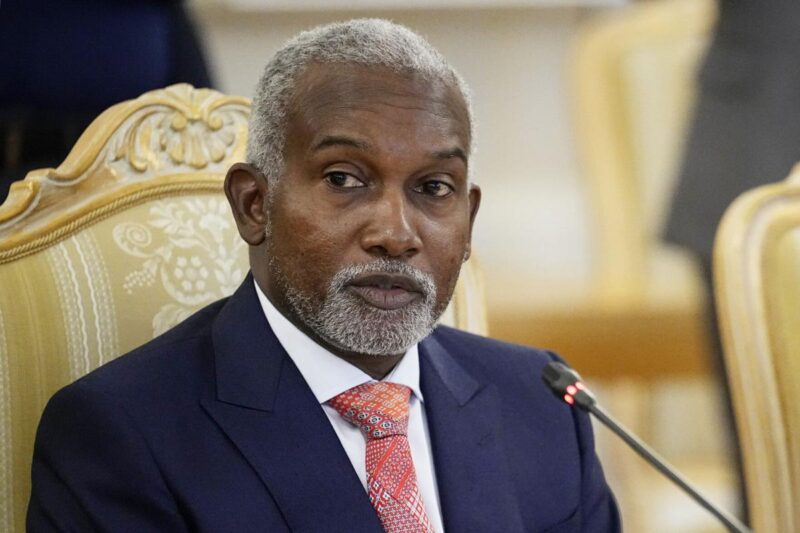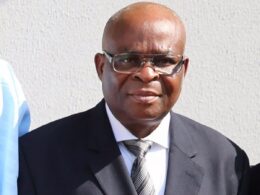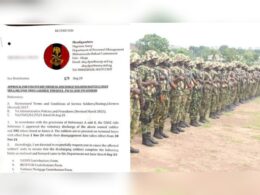Nigeria’s Minister of Foreign Affairs, Yusuf Tuggar, has reiterated the country’s interest in joining BRICS, the prominent economic bloc comprising Brazil, Russia, India, China, and South Africa.
Lagos, Nigeria- In a recent appearance on Channels Television’s Politics Today, Tuggar made it clear that while Nigeria has not yet formally applied to join, the country is seriously considering membership and will do so “at the right time.”
The minister’s remarks come amid growing global interest in BRICS, especially following its recent expansion and increasing influence on the world stage.
Nigeria’s Interest in BRICS
The idea of Nigeria joining BRICS has been a topic of speculation for several years, but it gained fresh momentum after Vice President Kashim Shettima represented President Bola Tinubu at the 15th BRICS Summit, held in Johannesburg, South Africa, in August 2023.
The summit, which marked 16 years since BRICS was formed, is considered a strategic platform for emerging economies to collaborate and counterbalance Western economic powers like the United States and the European Union.
While many expected Nigeria to formally announce its application to BRICS at the summit, Tuggar explained that the timing wasn’t yet right. “We’ll join when the time is right. We never said we are not joining BRICS. It is about timing,” Tuggar stated during the interview. “We have already indicated our interest in joining but we have not formally written.”
Tuggar’s comments suggest that Nigeria’s eventual membership in BRICS is more a matter of “when” than “if.”
Strategic Timing and Internal Reforms
The minister highlighted that Nigeria’s decision to delay its formal application is strategic. He noted that the country is currently undergoing a series of internal reforms, which need to be completed before Nigeria can fully commit to joining the bloc.
These reforms, initiated under President Bola Tinubu’s administration, aim to position Nigeria in a stronger economic and geopolitical standing before making any formal moves on BRICS membership.
“Tinubu was in China recently, and Vice-President Shettima visited China before that. In all our engagements, we have made it clear that we are interested in joining BRICS at the right time,” Tuggar said, underscoring the country’s ongoing diplomatic and economic engagements with BRICS member nations, particularly China.
The BRICS bloc itself is undergoing a significant transformation. At the recent summit, the group welcomed six new members: Egypt, Ethiopia, Iran, and the United Arab Emirates (UAE), with their membership taking effect on January 1, 2024.
This expansion is seen as a move to reshape global governance, particularly in amplifying the voices of the global south and pushing for a multipolar world order that challenges the dominance of Western powers.
With over 40 countries expressing interest in joining BRICS, including 23 that have formally applied, Nigeria’s potential membership comes at a time when the bloc is gaining considerable traction globally.
Nigeria and China: No Debt Forgiveness Talks
During his appearance on Politics Today, Tuggar was also asked about Nigeria’s financial relationship with China, particularly in light of recent calls for global debt relief for developing countries.
At the 79th session of the United Nations General Assembly (UNGA) held in New York, Vice-President Shettima, representing President Tinubu, called for reforms in the international financial system. He advocated for “comprehensive debt relief measures” to ensure sustainable development financing for countries in the global south, including Nigeria.
However, Tuggar clarified that Nigeria has not initiated any specific discussions with China regarding debt forgiveness or debt relief. “No, that is not what we are discussing with China,” the minister said, dismissing rumors that such talks were underway.
Tuggar emphasized that Nigeria’s debt situation is not as dire as some believe. “When it comes to the issue of debt, look at the debt-to-GDP ratio of Nigeria; we are not even among the critically indebted nations,” he explained. “When you talk about the debt of a developing country, Nigeria is not in that sort of precarious situation.”
Instead of focusing on debt relief, Tuggar stressed that China remains committed to investing more in Nigeria, particularly in infrastructure development. “As a matter of fact, China is prepared to lend more, China is prepared to invest more in Nigeria in terms of infrastructure development and other areas,” he said.
Nigeria’s BRICS Membership: A Future Power Move?
For Nigeria, joining BRICS could open the doors to enhanced economic collaboration with some of the world’s largest emerging economies, potentially unlocking new trade partnerships, investments, and a stronger voice in global economic forums.
However, as Tuggar emphasized, timing and strategy are crucial. Nigeria’s internal readiness, including its ongoing reforms, will likely dictate when the country formally applies for BRICS membership.
As BRICS continues to expand and assert its influence on the global stage, Nigeria’s decision to join could be a significant geopolitical move, amplifying the country’s role in shaping the future of global governance.










Join our Channel...